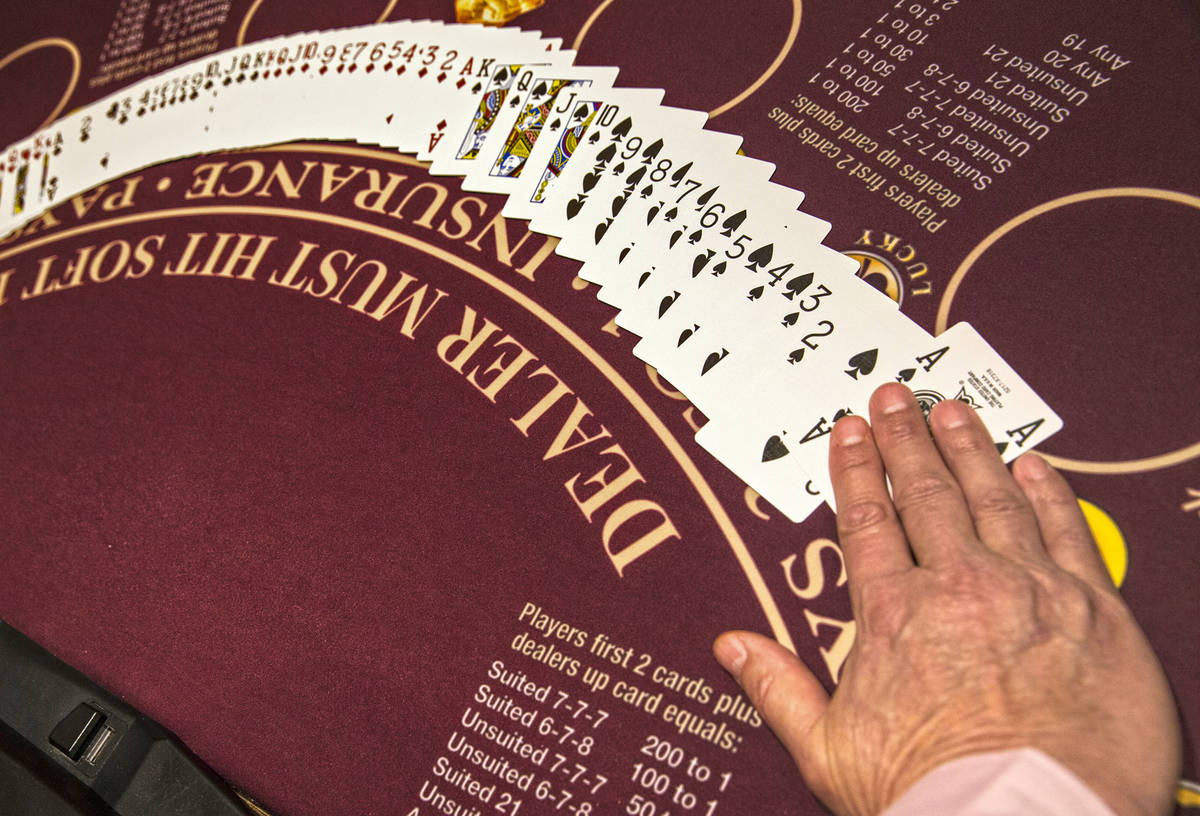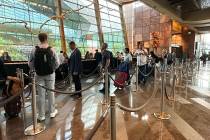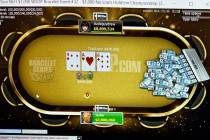Casino shutdown could move problem gamblers online instead
Every slot machine in the state is shut down, the tables are dark and there are few sports being played to wager on.
As National Problem Gambling Awareness Month comes to a close this week, a casual observer might think that the closure of hundreds of casinos across Nevada and the United States is putting a lid a gambling disorders.
It isn’t.
Problem gambling awareness advocates are as worried as ever that the 6.5 million Americans who meet the criteria for problem gambling will find a way to feed their addiction.
In a webinar last week by Keith Whyte, executive director of the Washington, D.C.-based National Council on Problem Gambling and Jody Bechtold, co-founder and CEO of the Better Institute in Pittsburgh, the presenters said they are concerned that states will move to expand online gaming opportunities amid casino closures across the country.
While sports betting is virtually dead at Nevada sportsbooks with MLB, the NBA and the NHL dormant during the COVID-19 crisis, some books offer wagering on sports that even the most avid sports fan has never heard of.
William Hill, the dominant sportsbook management company in the state, is taking bets on table tennis, the Belarus Extraleague Hockey Finals, chess and European soccer.
Sportsbooks across the state are hyping futures bets on the NFL draft, the 2020-21 NFL regular season win total and even the 2020-21 college basketball championship.
Last week the Nevada Gaming Control Board authorized wagering on Counter-Strike, ESL Pro League season 11: North America, a video game tournament.
Gamblers exhibiting addictive behavior may migrate online and continue to lose their money. Or as one of my friends, a recovering gambling addict, told me, “If there’s a gambling game out there on the internet, they’ll find it.” That includes legal offerings in states (Nevada has legalized online poker), social games and illegal offshore gambling operations.
Alan Feldman, the distinguished fellow in responsible gaming at UNLV’s International Gaming Institute, said it’s possible some problem gamblers will exhibit their addictive behavior elsewhere.
“On the one hand, to the extent that there are people who are triggered by casinos, there are no casinos to be triggered by at the moment, so if you view that as a good thing, then that may be a good thing,” Feldman said.
“But the reality is that they’re probably out there looking for whatever else is going to give them that rush. That could be alcohol, that could be drugs, that could be any other number of potentially dangerous activities,” he said.
Just as internet outlets may provide more problems for problem gamblers, there may be new solutions online as well.
Whyte and Feldman noted that the shutdown has moved some treatment providers to work toward teletherapy or telehealth, although there are some in-person sessions.
Feldman said the Robert Hunter International Problem Gambling Center in Las Vegas is still conducting group sessions with no more than 10 people in a room and everyone at least 6 feet apart.
The Hunter Center and Mental Health Counseling and Consulting in Las Vegas are two of the five treatment facilities participating in Project Worth, which connects individuals and families to the resources they need for treatment, starting through redefinition of a person’s worth.
While Gamblers Anonymous meetings across the valley have been stopped as a result of the state’s social distancing guidelines, several groups are now offering call-in or videoconferenced meetings to continue the therapeutic value of the organization’s 12-step recovery program.
Feldman is hopeful that individuals who need help will discover they need it during the coronavirus shutdown.
“Frankly, I’m hoping that in this pause, there are people who have been experiencing problems who are going to use this pause as a moment to reflect and maybe reach out and get some help,” he said.
Contact Richard N. Velotta at rvelotta@reviewjournal.com or 702-477-3893. Follow @RickVelotta on Twitter.
Getting help
Project Worth, an online service to connect people with compulsive gambling problems to state-funded treatment resources, was announced earlier this month by the state's Department of Health and Human Services Problem Gambling Services.
Help is available at https://www.projectworthnv.org/.
Gamblers Anonymous of Southern Nevada also is accessible online. Because all face-to-face meetings have been postponed, online and call-in sessions are available daily.
Help is available at https://gasn.info/.
The National Council on Problem Gambling's 24-hour national helpline is 800-522-4700 and its website is https://www.ncpgambling.org/.











































